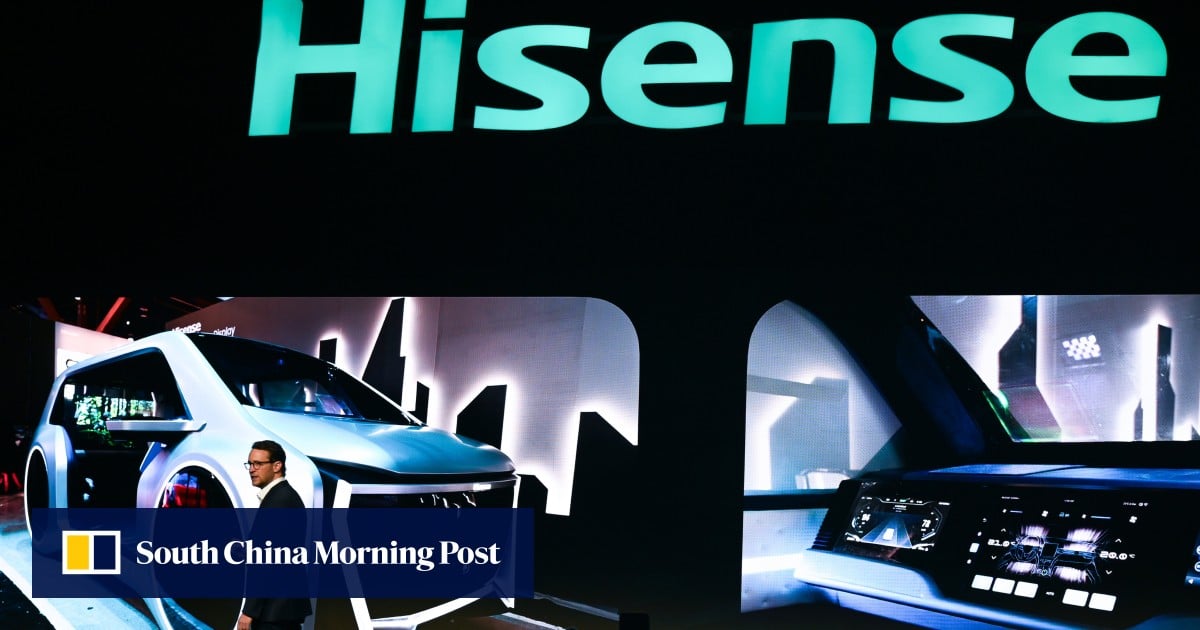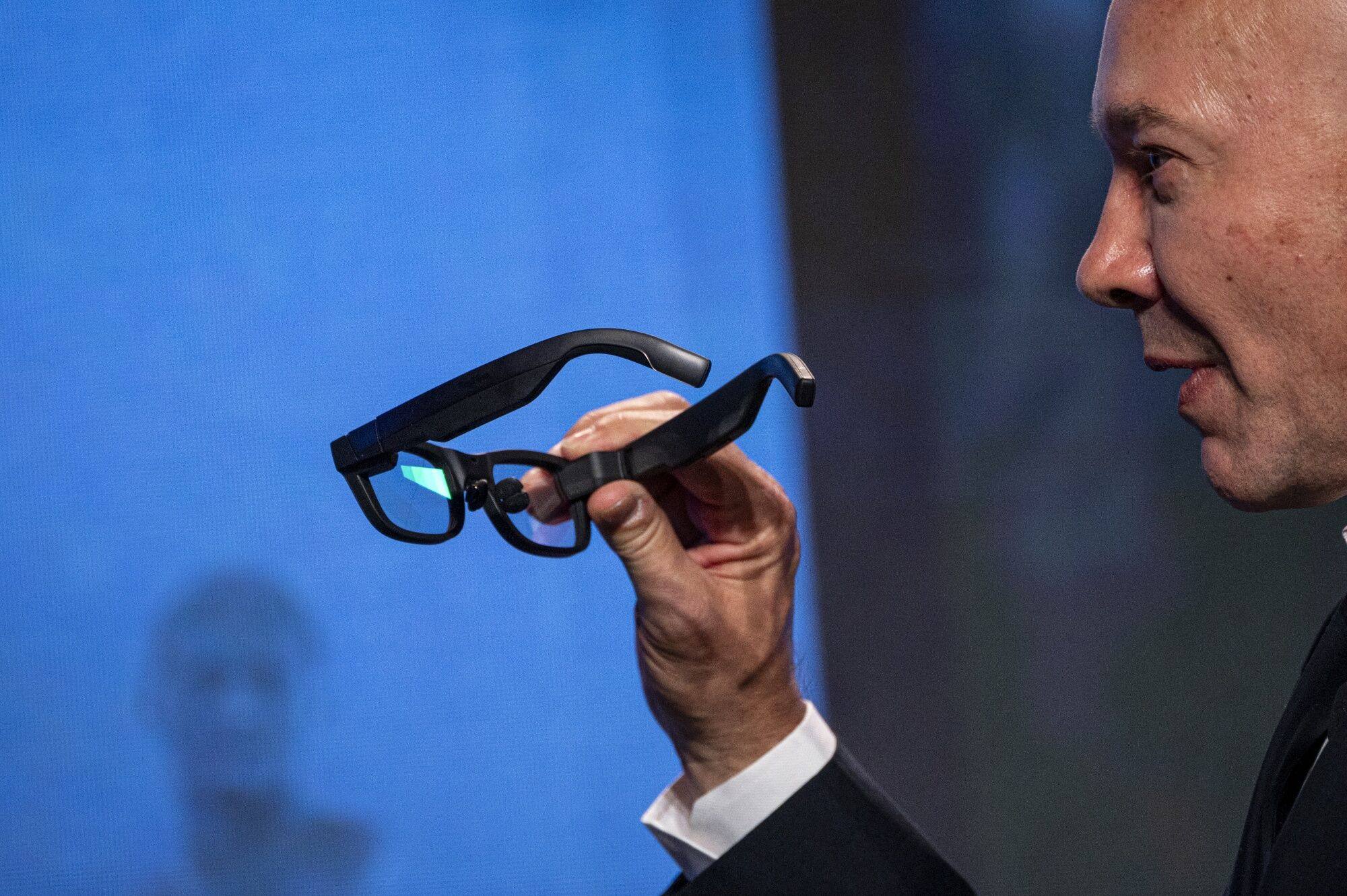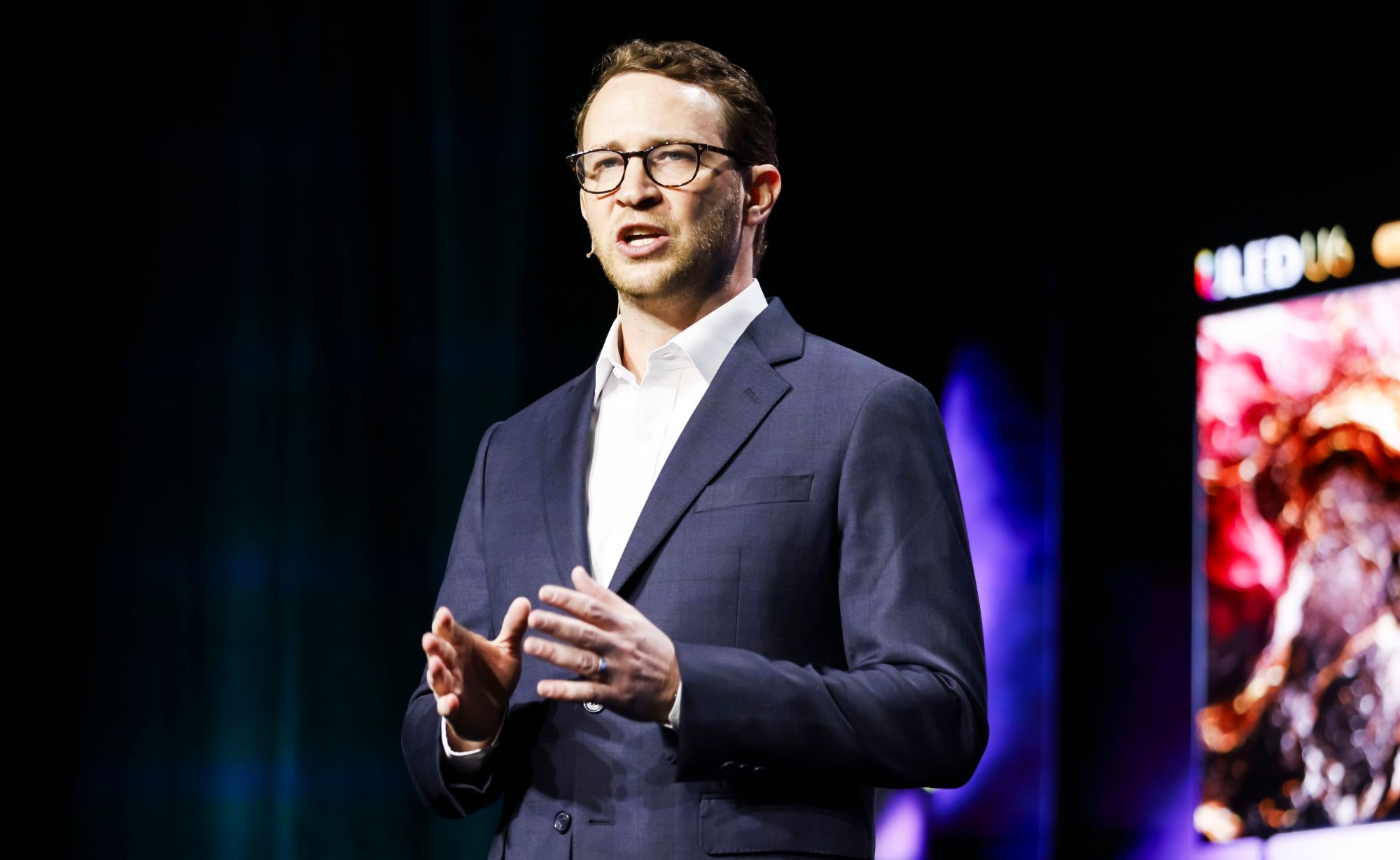
09 Jan CES 2024: China TV makers Hisense and TCL promote AI, live sports at US show
“When you think about global players, I think we are one of less than a handful of companies that have everything that it takes to be able to truly provide a smart home solution,” Gold said after the Hisense presentation. “We have all the ingredients, all the components. There are very few companies out there that can do the same.”
Tech giants Alibaba, ByteDance lead China’s return to CES
Tech giants Alibaba, ByteDance lead China’s return to CES
The flagship product from Hisense this year is its new 110-inch ULED X television with a brightness of 10,000 nits and 40,000 backlight zones.
Not to be outdone, TCL announced what it said is the world’s largest mini-LED TV at 115 inches. TCL referred to itself as a “great global power” with 32 research and development centres and 43 manufacturing sites around the world.
Mini LEDs featured prominently in the presentations of both Hisense and TCL, as they each presented their brands as the best option for finding this tech in TVs that cost just a few hundred dollars, rather than thousands.
Hisense said that mini LEDs – which cram more LEDs into a display to offer a greater range of contrast and image quality – are now integrated into all its models, including one for under US$500.
Hisense also introduced its new so-called laser TVs, which are projectors combined with an ambient-light-rejecting screen. The company said its newest 8K Sonic Laser TV is the “world’s largest sound-emitting screen”, offering a sound bar-like experience built into the projector. It is also offering a new Rollable Laser TV, which is exactly what it sounds like: a projector screen that rolls up and disappears, offering a cleaner look at home when not in use.
Both companies used sports to draw attention to their new TVs. As more viewers switch to streaming, the focus on live television has largely fallen to sports, a major reason households remain subscribed to cable and satellite TV packages.
TCL leaned into this heavily, inviting sportscasters including Charissa Thompson and former National Football League player Charles Woodson on stage for nearly the entire duration of the presentation.

Hisense highlighted the ability of its AI chips to enhance picture quality by identifying whether the video is coming from streaming, cable or another source.
“[Our AI is] about recognising what content it is, the quality, the factor in which it’s being displayed – whether it’s streaming, cable, DVDs, Blu-ray – and finding the way to enhance that picture quality,” Gold said. “Usually you put in one setting and never change it again. What we’re trying to do with AI is automatically detect, ‘Oh, now you’re watching football, let’s move to a sport setting’.”
Seemingly omnipresent at CES 2024, AI was mentioned repeatedly during both presentations, as it has been by rivals like Samsung and LG.
TCL talked of enhancing access to its AI processing with three levels of its AIPQ processors, which include “pro” and “ultra” versions. The AI processors are now offered in its cheaper S Class series.
While TVs are typically the highlight for these events from the Chinese display giants, they are also chasing other trends in the industry. TCL mentioned the latest version of the RayNeo X2 smart glasses, which can display images on the lenses to do things like offer real-time text translation. TCL incubated RayNeo.
The company also highlighted its newest smartphones and tablets with an emphasis on its Nxtpaper display, which is meant to be easier on the eyes like e-reader displays.
Hisense is working on its own augmented reality (AR) glasses and a virtual reality headset, but both are just prototypes for now.

“If you’re on the road and your smart refrigerator can tell you, ‘hey, you’re out of eggs; so on your way home, stop by and pick up some eggs,’ that’s the idea that we’re going for,” Gold said.
Samsung and Sony also discussed their own partnerships with carmakers in their presentations on Monday. Sony has partnered with Honda on its Afeela joint venture, while Samsung is partnering with Hyundai to bring its SmartThings platform to cars.
.
